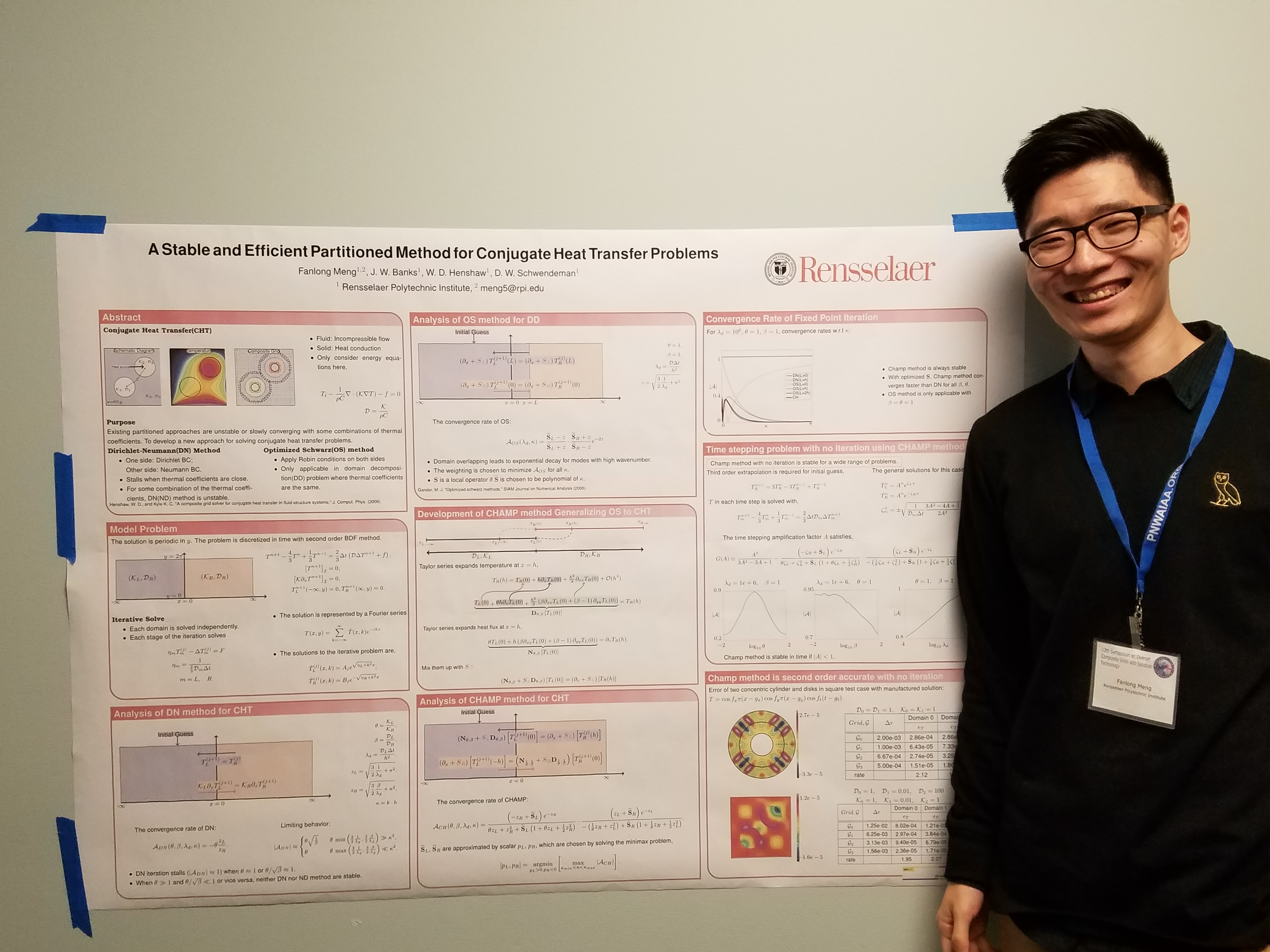
Overset Symposium Student Poster Contest
The first Symposium on Overset Composite Grids and Solution Technology was held in 1992 by the late Prof. Joseph Steger at NASA Ames Research Center to exploit the synergism of different overset grid practitioners. To celebrate the 10th conference, the organizing committee launched a Student Poster Contest, named after Prof. Steger. The 13th conference will continue this tradition by again holding a Student Poster Contest in conjunction with the 2016 Overset Symposium.
Poster submissions that cover computational work for complex geometries, engineering applications, numerical analysis, computer science, and mathematics are welcome. Research work related to overset technology is encouraged but not required. However, extra credit will be given to work that utilizes or further advances overset grid technology. The poster should highlight original work by a student, either in progress or completed within the last two years. The work may involve collaboration with university, government, or industry partners.
Submission Information:
- Prepare six 8.5 in. x 11 in. pages describing the work, or any other page sizes and arrangements that will fit on a 30 in. x 40 in. board.
- Poster boards and easels will be provided for mounting the pages.
- Only submissions involving students, either graduate or undergraduate in any discipline, working alone or as part of a team, are eligible for submission.
- Individuals are limited to one poster submission (i.e., they cannot submit one as an individual and one as part of a team).
Prize Information:
- First Prize: $200
- Second Prize: $100
- Third Prize: $50
All interested participants should register for the symposium on the registration page , after which you will be able to submit your abstract via email to Ben Rider (150 words or less, no figures). Abstracts should be submitted by no later than 12 August 2016. Team submissions should designate one person as the point of contact and have him/her register for the symposium and submit the abstract, with team members listed as co-authors. Notification of acceptance will be by 19 August 2016. Note that depending on the number of submissions, not all submitted posters may be accepted. In this situation, posters will be accepted based on perceived technical merit from all abstracts received prior to the deadline.
All accepted posters will be displayed during the 13th Overset Grid Symposium with the poster contest taking place on Tuesday of the conference (18 October 2016). Poster judging will occur during the evening event and participants are asked to be present at their posters during these times to answer questions from the judges. Presenters may also be asked to present a brief (one to two minute) overview of their work to the symposium on Wednesday morning. Winners will be determined by a committee of experts representing U.S. government labs, academia, and industry. Prizes will be awarded to the top three posters based on scores in technical content and clarity of presentation.
Please direct questions to Ben Rider.
2016 Poster Contest Participants
First Prize
Stable Upwind Scheme for Maxwell's Equations in Second-Order Form on Overlapping Grids
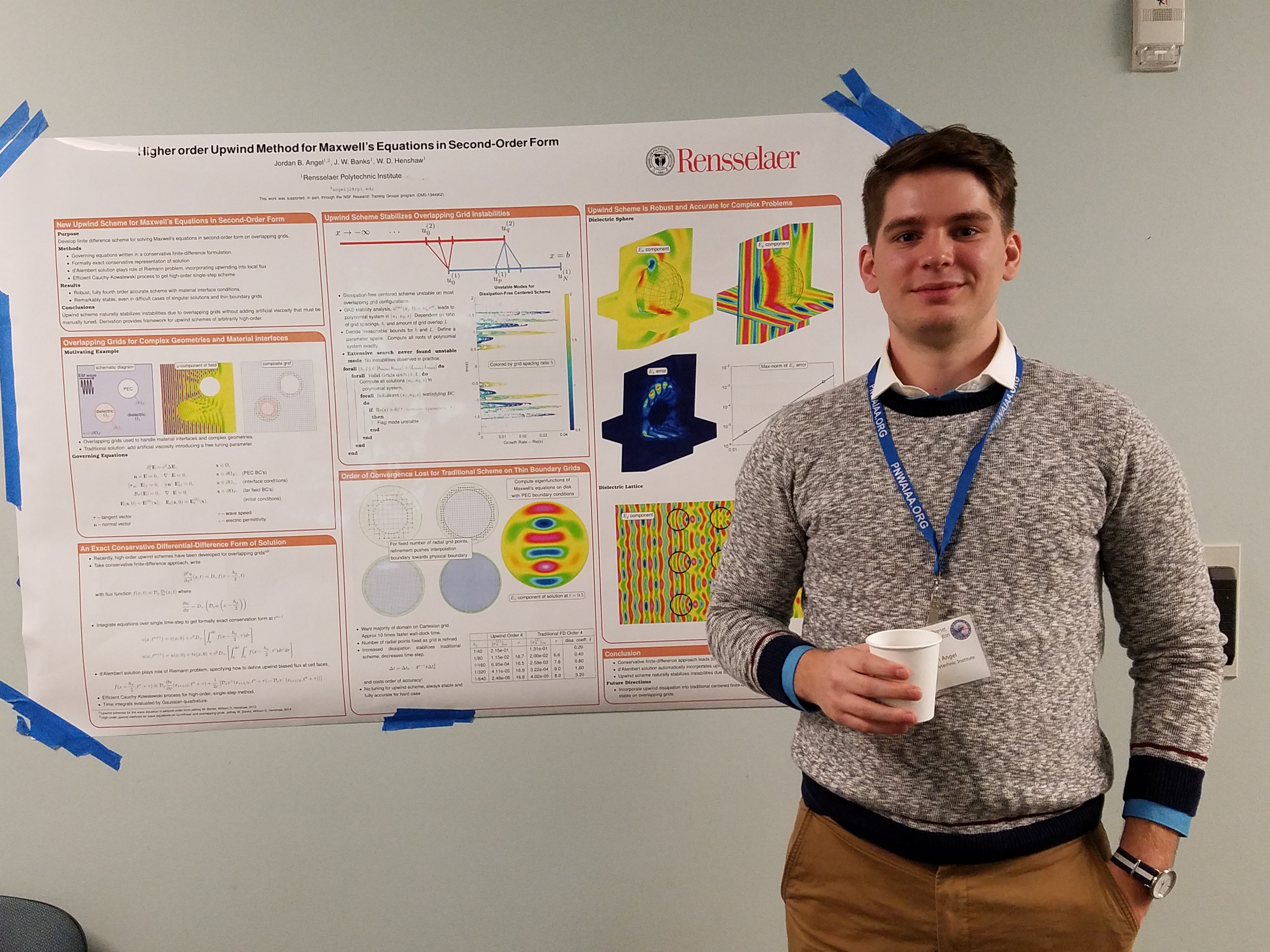
Second Prize
A Coupled Overset Mesh and Hybridizable Discontinuous Galerkin Algorithm
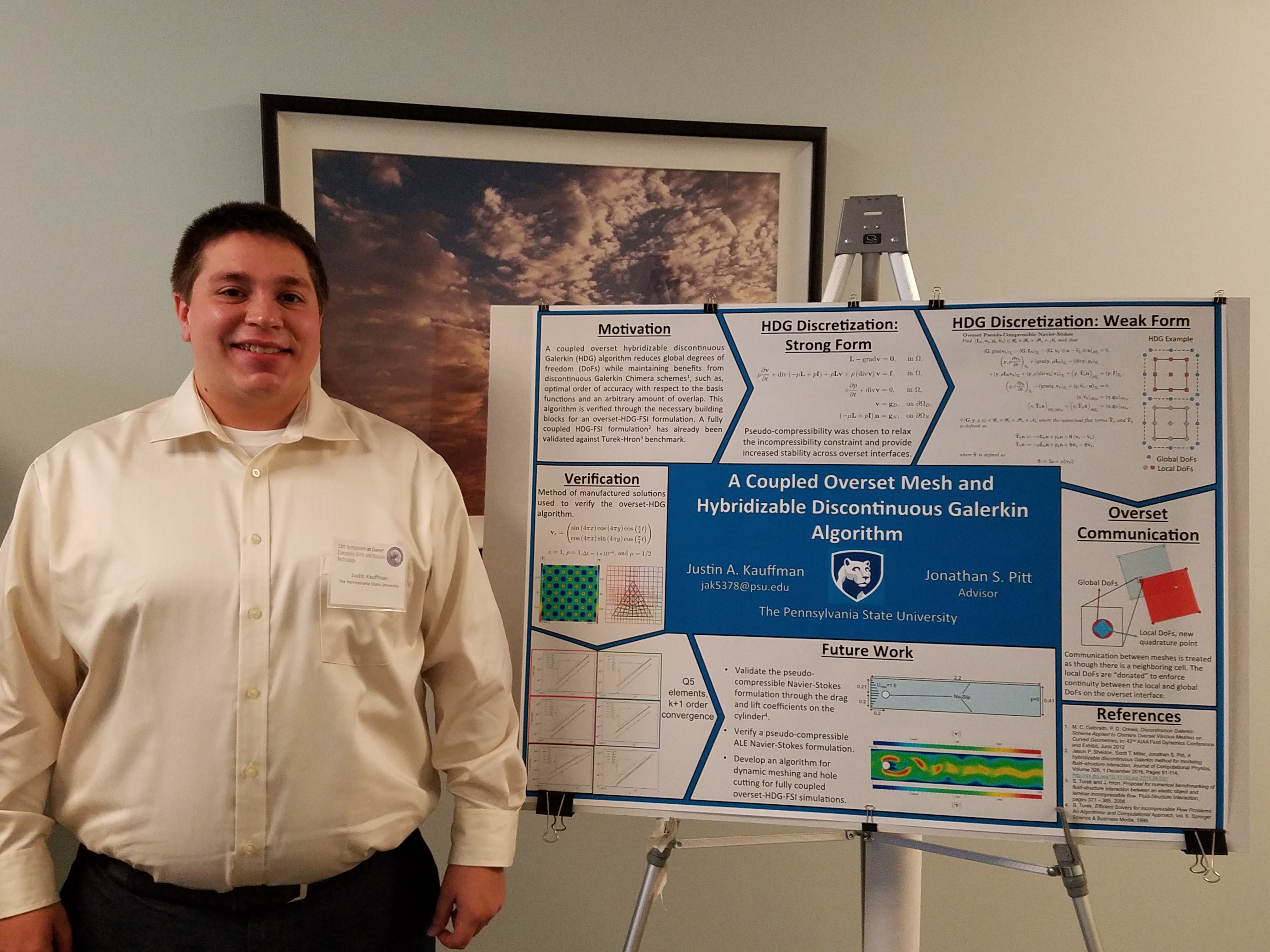
Third Prize
A GPU-Accelerated Structured Overset Solver for Aerodynamic Flows
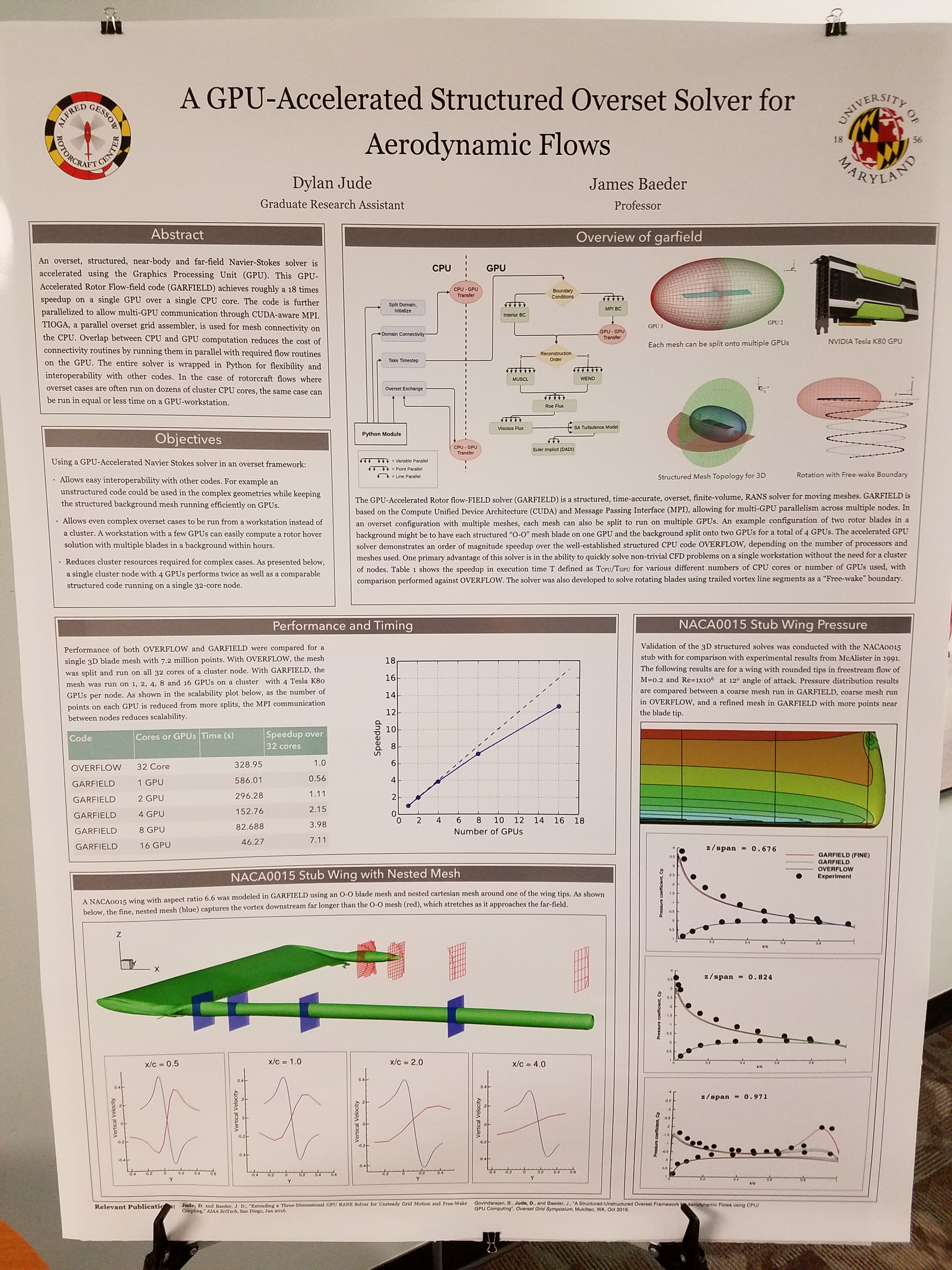
Runners-Up
Analysis of In-Cylinder Flow and Turbulence in TCC Engine through the Application of Overset Grids in STAR-CCM+
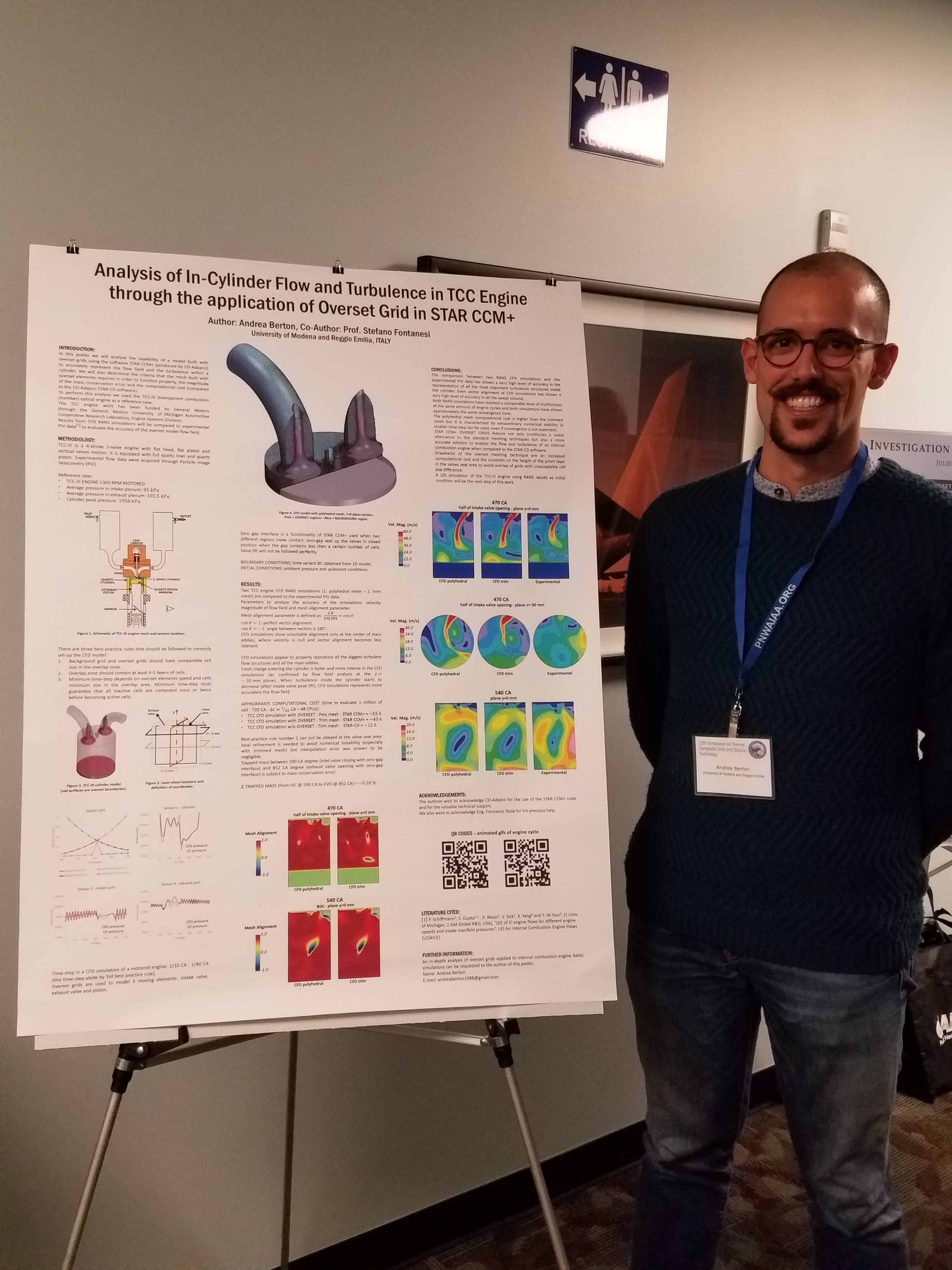
Optimization of Individual Blade Control
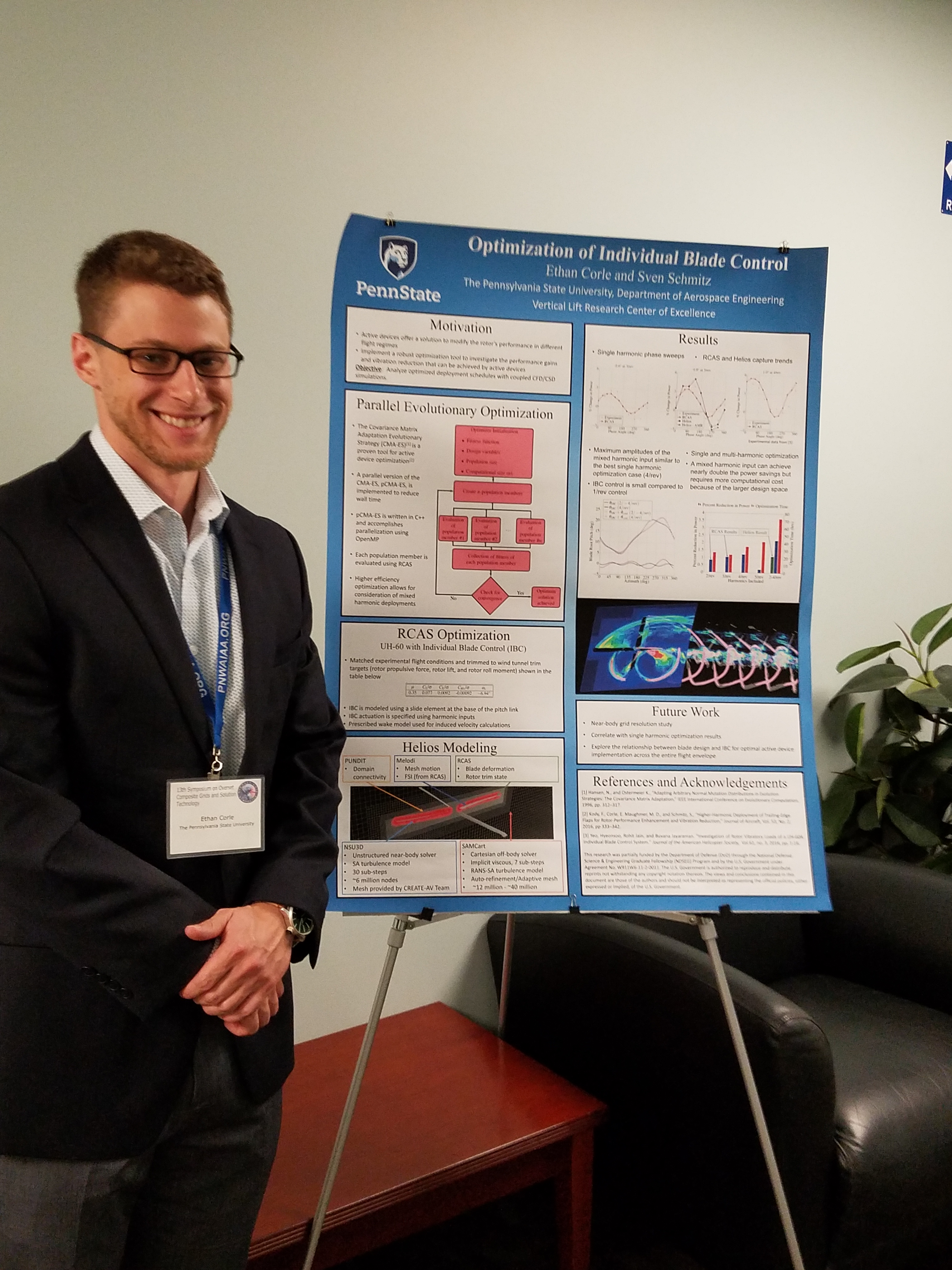
Computationally Efficient Overset Dynamic Stall Simulations Using Time Adaption Techniques
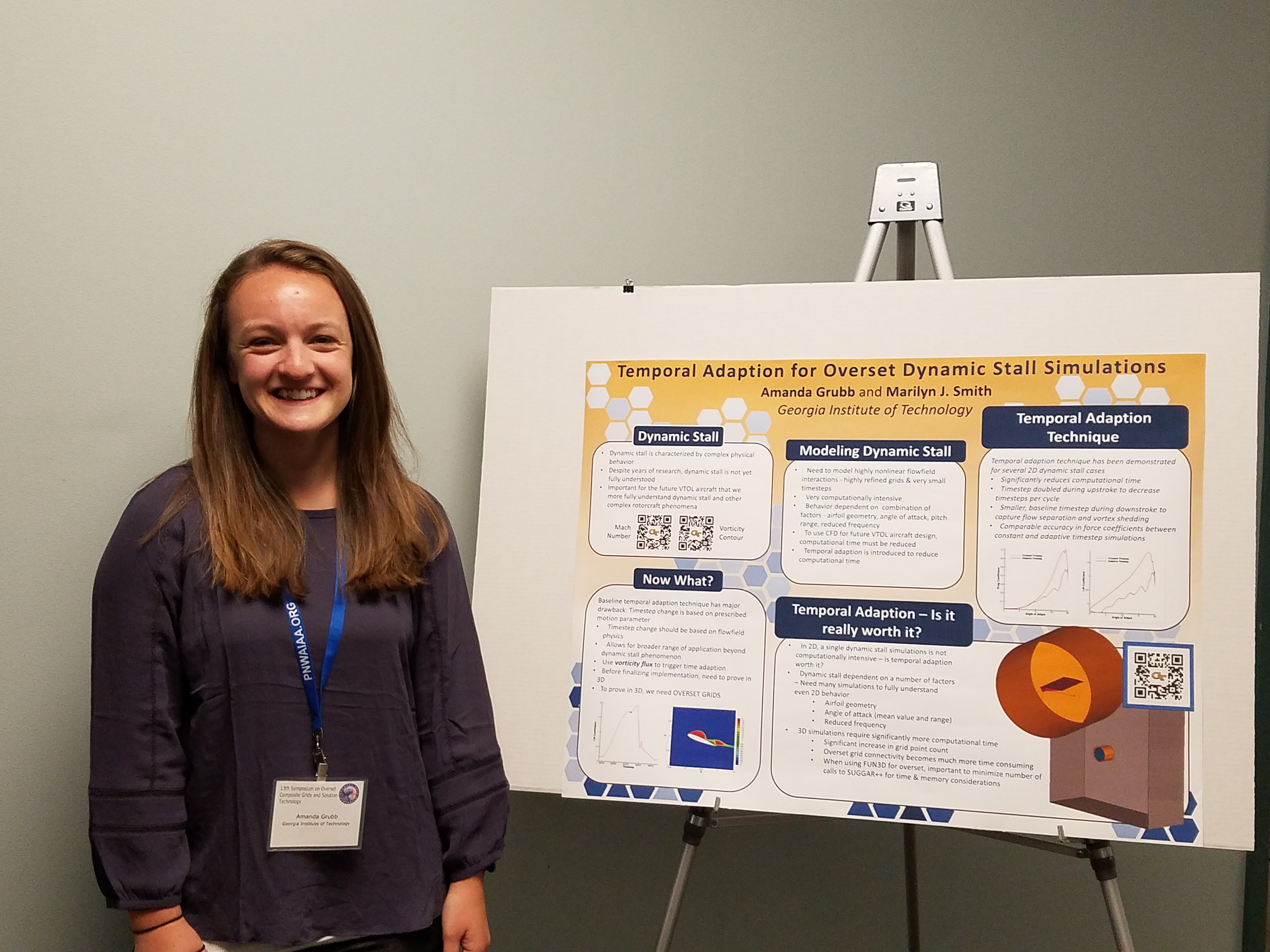
Investigation of Overset Boundary Condition Treatment Inside a Cell-Centred Solver for Surface Conforming Meshes
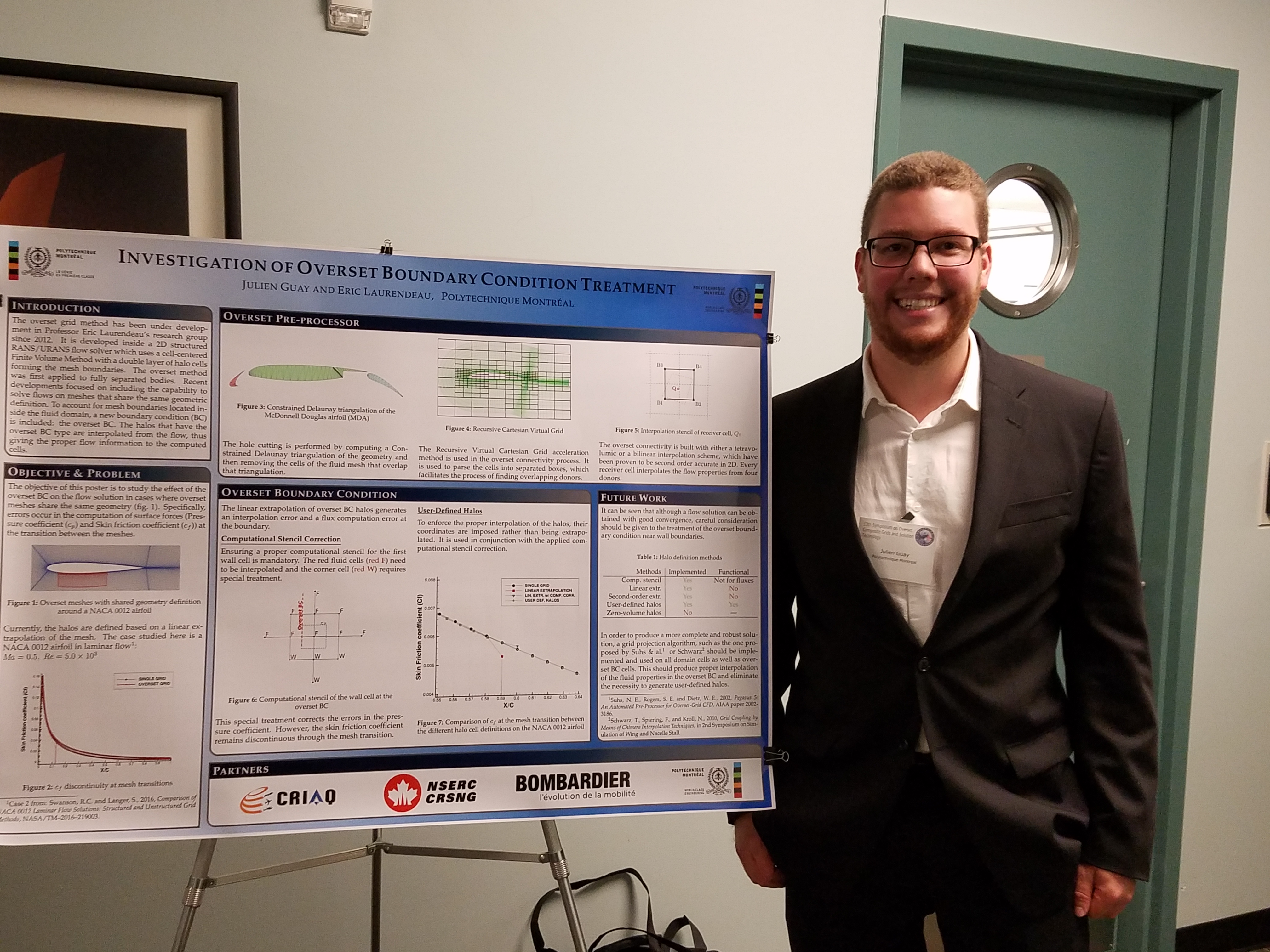
Methodology for Efficiently Capturing Wake Structures of a Hovering Rotor
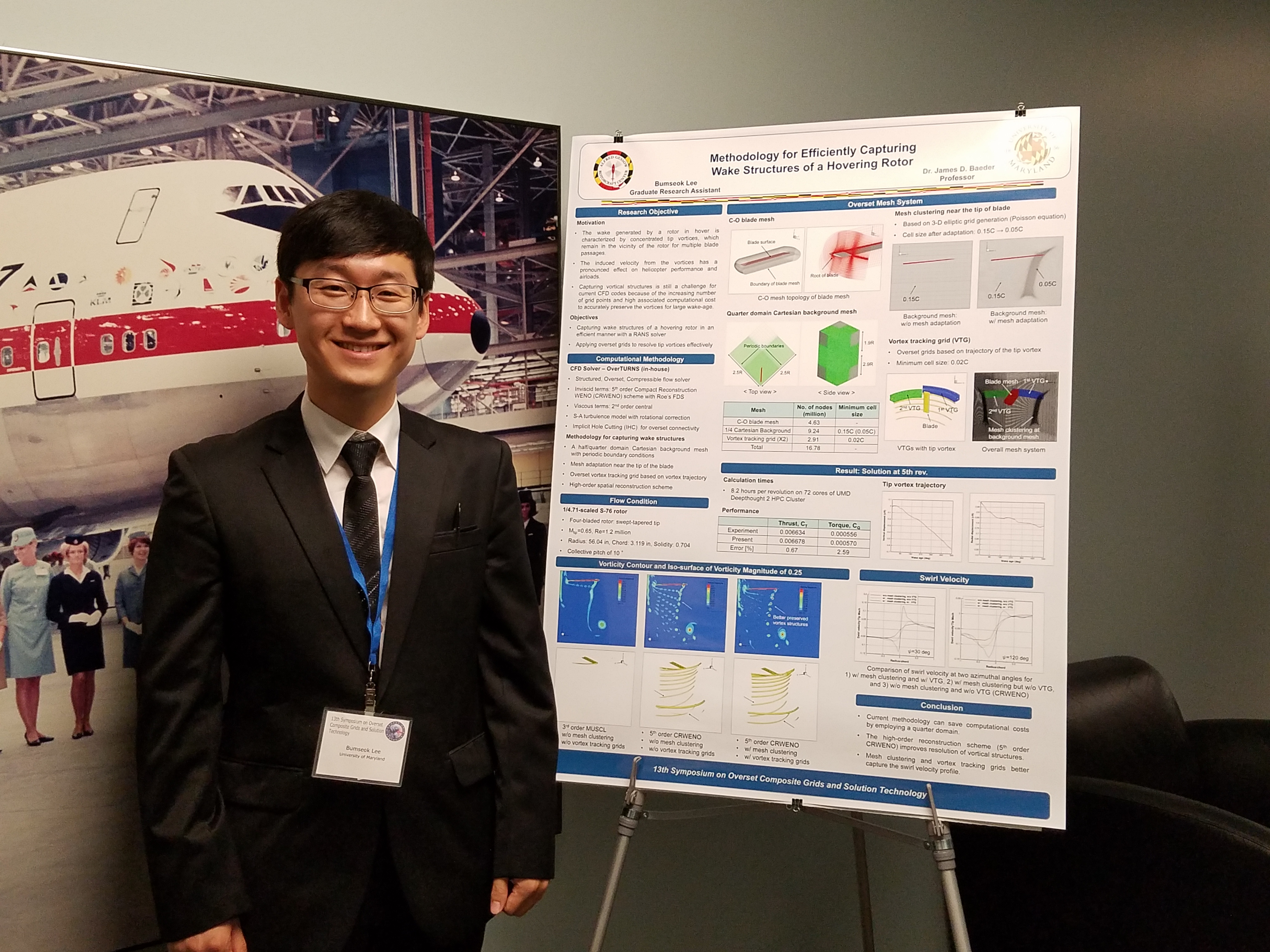
CHAMP: A stable partitioned algorithm for conjugate heat transfer
